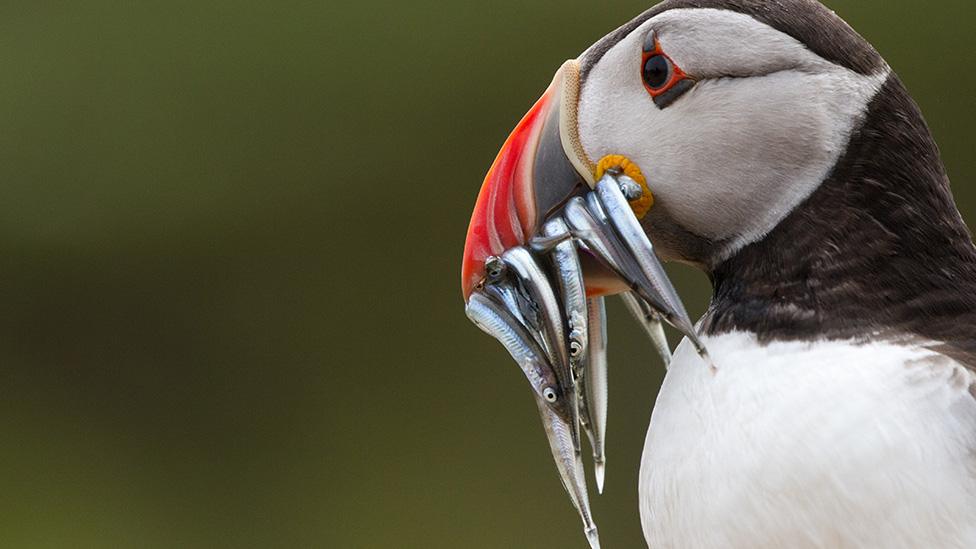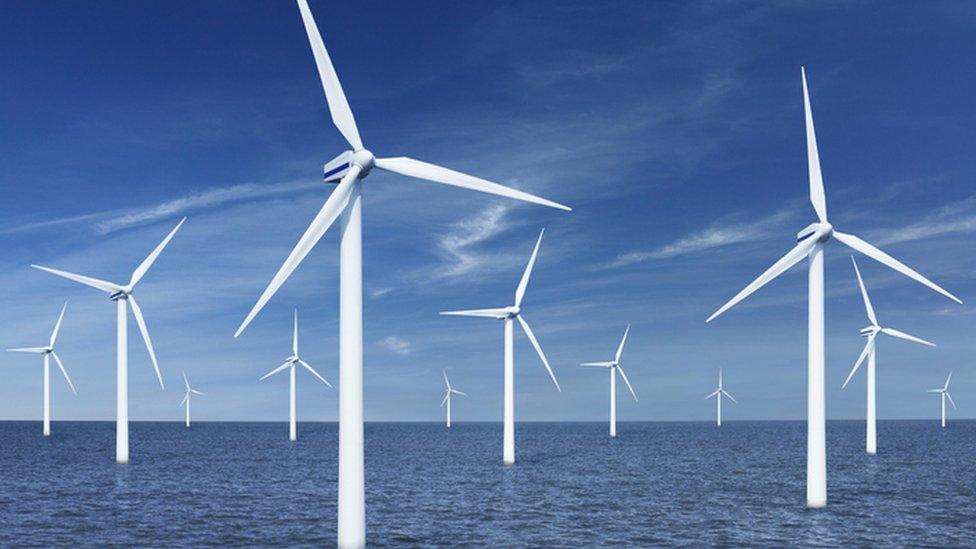Sandeel fishing ban proposed near Berwick Bank wind farm
- Published

Sandeels are an important source of food for many seabirds
An energy company says it wants sandeel fishing banned around its proposed North Sea wind farm to help prevent a decline in seabird numbers.
SSE Renewables - which is building the Berwick Bank wind development - hopes the move will mitigate any losses caused by birds hitting the turbines.
But fishing leaders are planning to fight the move and say boats still need access to fishing grounds.
The firm says it needs an "ecosystem-based approach" to protect birds.
Breeds such as kittiwakes are already in long-term decline because of a range of factors including a lack of food.
Sandeels are an important food source and it is hoped that protecting their population would allow bird numbers to increase.
Having more birds would lessen the impact of them being killed by striking the moving blades.
Project director Alex Meredith said: "We think that it's important that we manage the sandeel fisheries carefully to allow enough prey for the seabirds and to allow for offshore wind development, which is key to addressing the climate emergency which also sits behind the decline in seabird numbers.
"We recognise that there might be an impact from an offshore wind farm on birds but we know that the bigger impact is caused by climate change."
Located in the outer Firth of Forth, Berwick Bank will be one of the largest offshore wind developments in the world, generating up to 4.1 gigawatts of electricity.
That would be enough to power all of Scotland's homes twice over.

Offshore wind farms could have an impact on seabird populations
SSE Renewables wants construction work to begin in 2024 with the first electricity being generated three years later.
The company will first need to convince ministers of the merits of a ban on sandeel fishing.
But Elspeth Macdonald from the Scottish Fishermen's Federation is not convinced.
She said: "Our industry is going to be very significantly affected by the amount of space that the offshore wind industries is going to take up, so we are anxious and concerned, not just about the spatial footprint, but any other proposals that might have an impact or restrict fishing in any way.
"I think we should be in no doubt as to the potential impact that our fleet faces."
Concerns have been raised about the potential impact of large wind farms being installed around Scotland's coast.
Crown Estate Scotland confirmed in January that 17 agreements had been offered for new wind farms as part of its ScotWind development.
That will generate 25 gigawatts of electricity, making Scotland a significant net-exporter of green energy.
Red list species
But RSPB Scotland said it would accelerate some seabird species towards extinction in Scotland.
It has previously been involved in legal challenges against offshore wind farms and says there still is not enough conclusive research about their impact on birds.
Senior marine conservation planner Catherine Kelham said: "In Scotland we have 24 internationally-important seabirds and 22 of those are on the amber or red list so they're species of conservation concern.
"Everything that we do know about nature tells us that the protections that are in place aren't sufficient and so our seabirds really do need looking after."
The Scottish government said it did not support fishing for sandeels and that it took the protection of the marine environment seriously.
The UK fleet is unable to catch them because no quota has been issued for the species but foreign vessels - mainly Danish - can still target sandeels.
A spokesman added: "Sandeels are a key part in the wider ecosystem and measures to protect Scotland's marine environment such as Marine Protected Areas are crucial for supporting the sustainable recovery of our marine industries and making progress towards good environmental status."